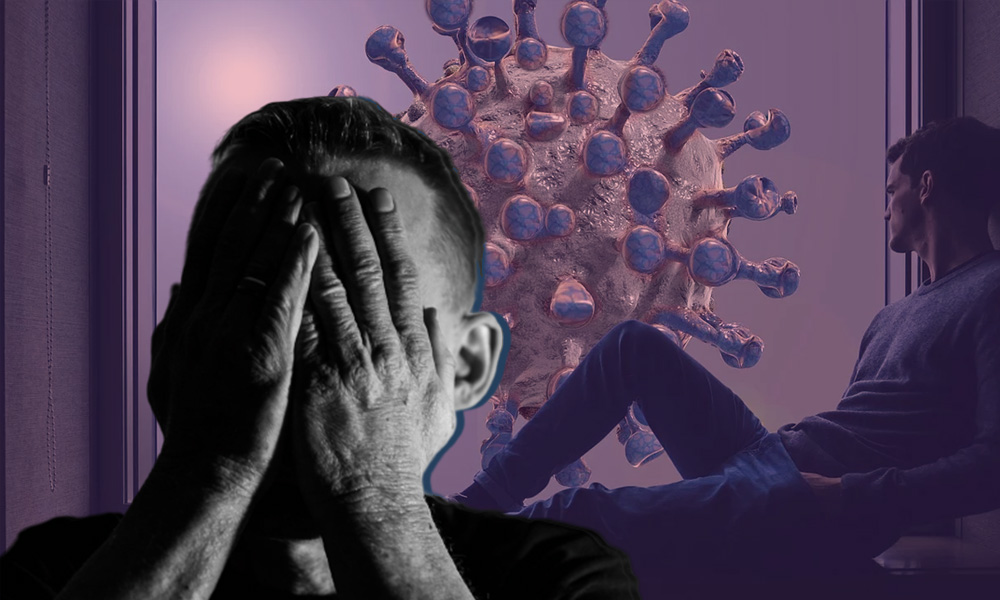Helplessness, Boredom, Depression: Here's How You Can Deal With Mental Health Issues During Quarantine
 |
|"People in quarantine must engage in positive discussions with friends and family - on topics not pertaining to the pandemic,” Dr. Aravind tells The Logical Indian.
With India being on the brink of stage three of the COVID-19 outbreak, hundreds of people have been kept in quarantine to contain the spread of the virus.
Life in quarantine is not easy, and can have serious effects on one's mental health. A study from King's College London says that quarantine affects your mental health, causing post-traumatic stress, confusion and anger. The effects of being separated from your loved ones, uncertainty over disease status, loss of freedom and boredom can be dramatic.
To understand what can be done to avoid being negatively affected by quarantine, The Logical Indian spoke to Dr. E. Aravind Raj, Associate Professor, Department of Psychiatric Social Work, NIMHANS, Bengaluru.
"Home isolation/quarantine can result in feelings of helplessness, boredom, loneliness and depression. This justifies the principle of Disaster Mental Health that says that events followed by any disaster causes more psychosocial issues than the hazard itself. In this case, home isolation/ quarantine causes more stress than the COVID-19 itself," Dr. Aravind says.
Dr. Aravind says that although life in quarantine or isolation may get difficult at times, it is important that we remain positive.
How Can Adults Deal With Quarantine?
According to Dr. Aravind, those in quarantine must engage in physical exercises (e.g. yoga, tai chi, stretching), cognitive exercises, relaxation exercises (e.g. breathing, meditation, mindfulness). They must spend time reading books and magazines, and avoid watching anything on TV that might induce fear. They must also avoid rumours, or reduce the time they spend on listening to rumours.
"It is essential that they search for information from reliable sources, and also reduce the time spent on looking for information online - 1-2 times per day, rather than every hour. They must engage in positive discussions with friends and family - on topics not pertaining to the pandemic," Dr. Aravind says.
He further says that they must maintain social contact via phone or text messages with people who might be isolated.
"Persons in quarantine who can make choices during their day (e.g. meal choices), have access to structured activities, have a routine and receive information updates (on notice boards or through text messages) are likely to cope better than individuals confined to an isolated area with decreased autonomy," Dr. Aravind says.
How Can Older People Deal With Quarantine?
"Medical needs of older adults in connection with/without COVID-19 need to be met during the outbreak. This includes uninterrupted access to essential medicines (for diabetes, cancer, kidney disease, HIV). Telemedicine and online medical services can be used as well," Dr. Aravind says.
"Isolated or infected older people should be presented with truthful information on risk factors and chances of recovery," he adds.
During quarantine, home care services should use technology (WeChat, WhatsApp) to provide training/counselling. This should also include psychological first aid training.
"We must provide older people with simple physical exercises to perform at their home/in quarantine to maintain mobility and reduce boredom," Dr. Aravind explains.
How Can Children Deal With Quarantine?
Adults/caregivers must come up with activities for children during quarantine or isolation. The virus must be explained through various activities.
"Children must be kept busy with hand-washing games with rhymes, should be told imaginary stories about the virus exploring the body, and should be helped to turn cleaning and disinfecting the house into a fun game. The virus should not seem like a frightening object to them - they can even be asked to colour pictures or viruses drawn by the caregivers," Dr. Aravind says.
How Can Persons With Disability Deal With Quarantine?
Accessible communication messages need to be developed for people with disabilities (including sensory, intellectual, cognitive and psychosocial disabilities).
"If caregivers need to be moved into quarantine, plans must be made to ensure continued support for people with disabilities," Dr. Aravind says.
It is essential that every human being in quarantine can engage in activities they were previously unable to do because of lack of time. Loved ones must be continuously in touch with them over the phone, online or video chat.
Also Read: Flattening The Coronavirus Curve: How Social Distancing Can Help Mitigate The Outbreak?
